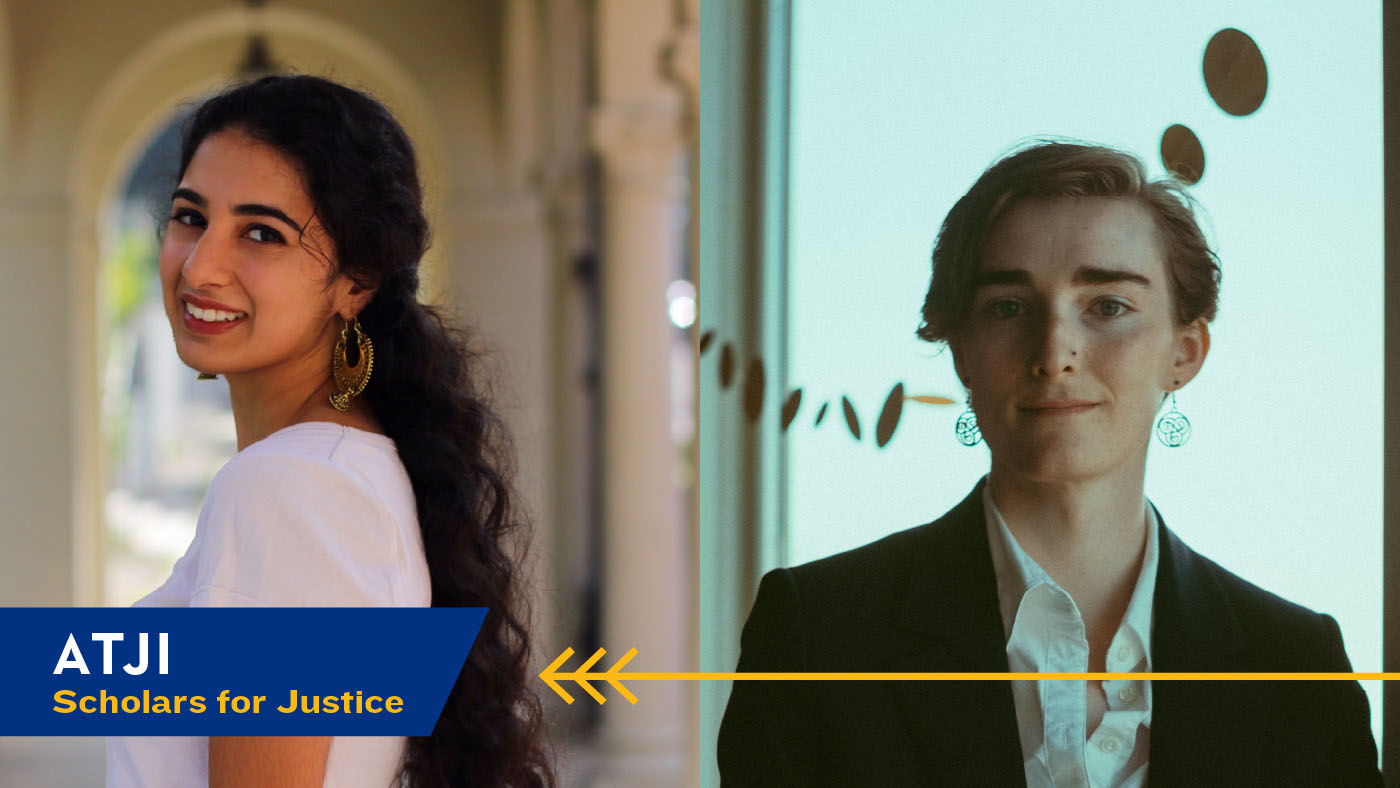While this year’s Scholars for Justice recipients — Seattle University School of Law 1L students Jagmit Dhami ’26 and Jamie Eymann ’26 — plan to pursue different fields of law, both cherish a strong commitment to advocacy for community members most in need of a voice.
The full-tuition award is given through the Access to Justice Institute to two incoming JD students each year who demonstrate a commitment to community service, academic excellence, and a future in public interest law.
Scholars for Justice must take the Pro Bono Pledge to complete at least 100 hours of pro bono work before graduation. Additionally, they must maintain at least a 3.0 GPA, seek out volunteer and leadership opportunities, and commit to working in public interest for at least one year within three years of graduation.
Dhami grew up with a strong tradition of community service. As the daughter of Punjabi immigrants, she learned at a young age the Sikh concept of “Seva” or “selfless service.”
“It’s the idea that you were brought into this community, so you have a responsibility to this community,” she said.
Dhami carried out Seva in her undergraduate studies at Occidental College in Los Angeles, where she worked with students and community partners on social justice issues.
When she returned to her hometown of Bellingham after college, Dhami organized a local version of the protests that Indian farmers were waging 7,000 miles away against their government for implementing laws that harmed their livelihood. Becoming part of a worldwide movement for justice inspired Dhami to go into law and advocate for immigrants.
“Going back home gave me the opportunity to see that my own community needs a bridge for advocacy, because if you’re an immigrant, you don’t completely feel like you’re part of the community,” Dhami said. “The children of immigrants can be that bridge, show their parents that they belong here, and give them the tools and the spirit to advocate for themselves.”
Dhami hopes to make the process of moving to America less confusing and stressful than it was for her own parents.
“Scholars for Justice allows the student to be committed to public service work without being worried about the financial implications of it,” she said.
Eymann learned about social justice issues as an economics and journalism/media studies major at the University of Oregon before beginning a social work career at treatment facilities for youth struggling with behavioral health issues and homelessness. Eymann (who uses they/them pronouns) said they witnessed a system that was failing both the teens it was supposed to care for and the caregivers themselves.
“So much of it is deeply systemic – there has been a deferring of responsibility on the part of our social systems,” Eymann said, noting that there were not enough resources for employees or youth, such as shelter beds for teens.
This lack of resources, Eymann said, led to tragic outcomes, from teens running away to colleagues developing serious health problems due to exhaustion.
“The moment that I realized I wanted to be an attorney was the conversation I had with a particular client where I was trying to offer reassurance,” Eymann recalled. “It went from counseling to looking at the laws. I realized the avenues I had to help clients were through law.”
Eymann plans to work in labor law, homelessness advocacy, eviction law, or a mix of all three, at a nonprofit. They are excited for the hands-on, pro bono work of Seattle U Law’s many clinics, like the Workers’ Rights Clinic and the Housing Justice Clinic.
“Being able to get this scholarship makes that career path so approachable,” Eymann said. “I feel very blessed.”

